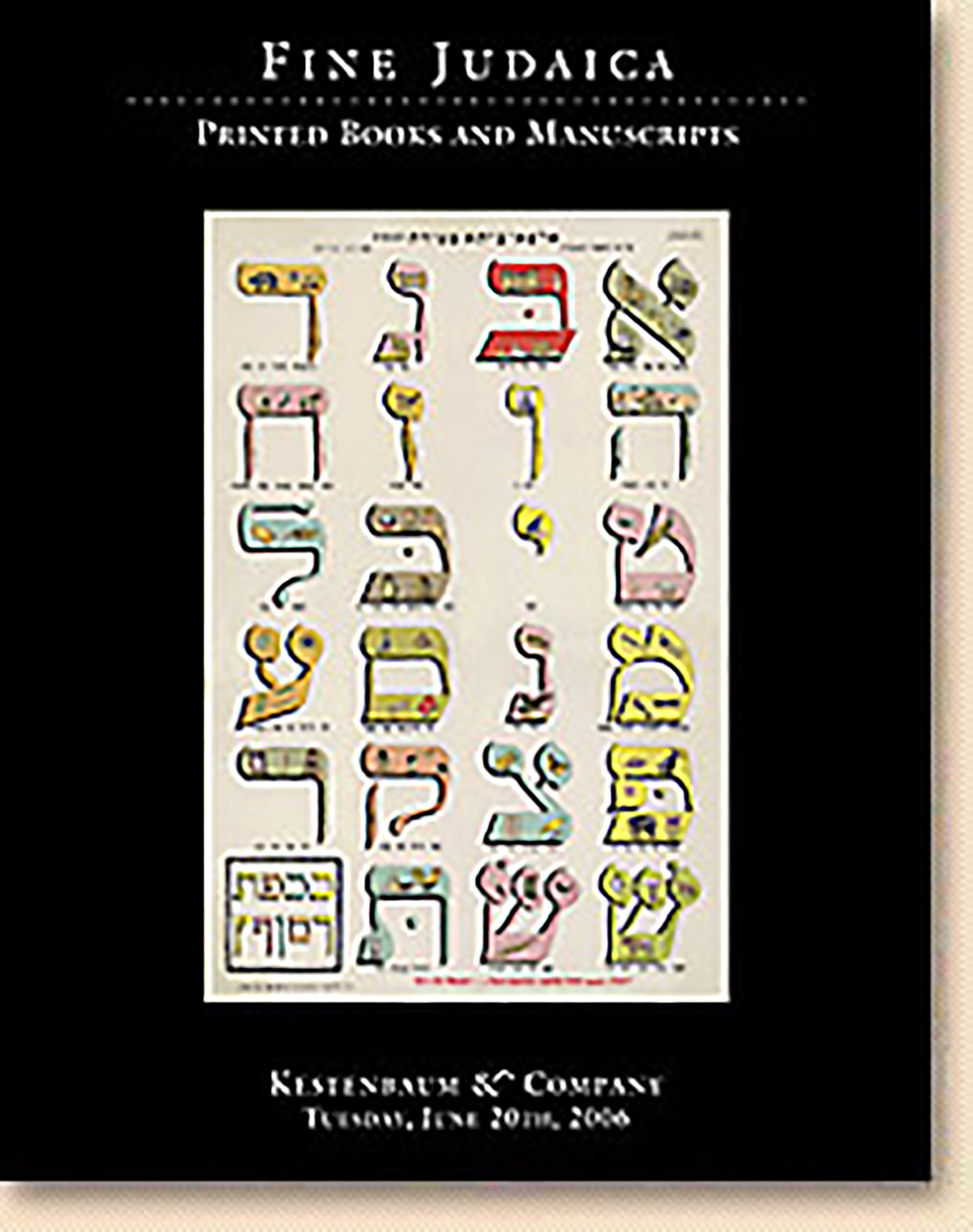(BIBLE

AUCTION 33 |
Tuesday, June 20th,
2006 at 1:00
Fine Judaica: Including Hebrew Printed Books, Manuscripts, & Autograph Letters
Lot 19
(BIBLE
Basle: v.d
Est: $8,000 - $12,000
PRICE REALIZED $13,000
MAGNIFICENT COPY. ALL PARTS, BOUND HERE IN ONE VOLUME, IN A FINE CONTEMPORARY BINDING. THE MOST SCHOLARLY EDITION OF THE RABBINIC BIBLES
The publisher was fortunate in obtaining the services of experienced scholars, printers and correctors who helped make this endeavor one of the most grammatically correct editions in accordance with the Masorah, as well as most esthetically pleasing, with a slightly different layout than the previous Venetian editions. Abraham Braunschweig, the scholarly Jewish editor/printer (who previously printed Bibles in Hanau and moved to Basle in 1617, to work exclusively for Konig in conjunction with Buxtorf), writes in a fine Rabbinic Hebrew, interspersed with halachic references, of the improvements and additions wrought in this edition (which were omitted from the second and third Venice editions), e.g. Ibn Ezra’s commentary on Isaiah and Minor Prophets, etc. Buxtorf, who occupied the Chair of Bible and Hebrew Studies at the University of Basle, held sympathetic views consistent with traditional Judaism, and was friendly wth Menasseh Ben Israel and other rabbis.
Commentary to the Tiberian Masorah of the Bible: Buxtorf devoted this work to the tradition of the Masoretes of Tiberias. In doing so, he made ample use of Elijah Levita’s Masoreth ha-Masoreth (Venice, 1538). Buxtorf divides his work in three: Commentary on the Masorah, Key of the Masorah, and Critical Commentary. Buxtorf was of the view that the Masoretic text is the genuine version of the Bible, though he accepted Levita’s revolutionary theory that the masoretic vocalization and cantillation marks originated with Ezra and the Men of the Great Assembly. See EJ, Vol. IV, col. 1543
